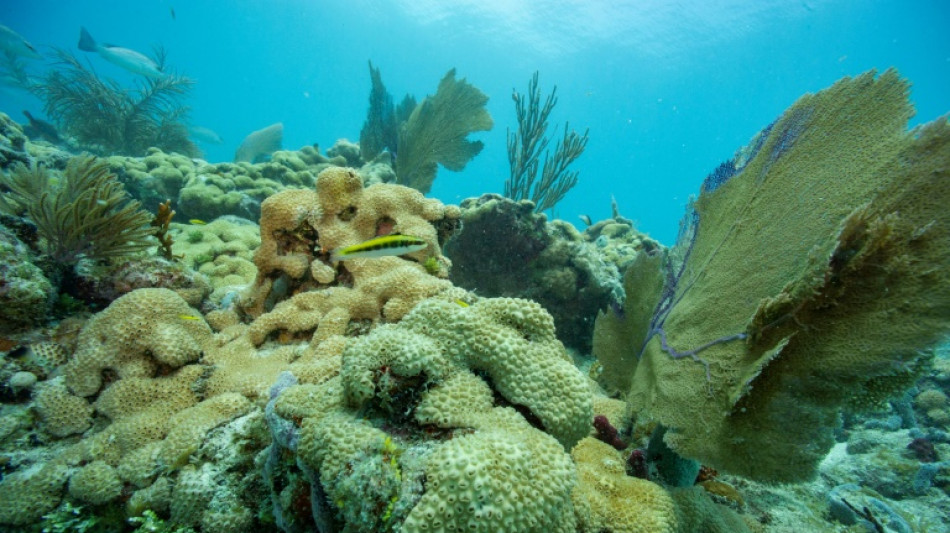
-
 What's behind England's Six Nations slump?
What's behind England's Six Nations slump?
-
Napoli rage at officials after loss at Atalanta

-
 Liverpool late show floors Nottingham Forest
Liverpool late show floors Nottingham Forest
-
Rimac Nevera R: Beyond imagination

-
 USA beat Canada to win men's Olympic ice hockey gold
USA beat Canada to win men's Olympic ice hockey gold
-
Samardzic seals comeback win for Atalanta over Napoli

-
 Eileen Gu switches slopes for catwalk after Olympic flourish
Eileen Gu switches slopes for catwalk after Olympic flourish
-
Luce: Ferrari's ingenious electric revolution

-
 Miller guides South Africa to 187-7 against India
Miller guides South Africa to 187-7 against India
-
Scotland boss 'proud' of comeback Six Nations win over Wales

-
 Iranian students rally for second day as fears of war with US mount
Iranian students rally for second day as fears of war with US mount
-
US Secret Service kills man trying to access Trump Florida estate

-
 Coventry 'let the Games do their magic': former IOC executives
Coventry 'let the Games do their magic': former IOC executives
-
Cayenne Turbo Electric 2026

-
 Sri Lanka have to qualify 'the hard way' after England drubbing
Sri Lanka have to qualify 'the hard way' after England drubbing
-
Doris says Six Nations rout of England is sparking Irish 'belief'

-
 Thousands of pilgrims visit remains of St Francis
Thousands of pilgrims visit remains of St Francis
-
Emotional Gu makes history with Olympic freeski halfpipe gold

-
 Impressive Del Toro takes statement victory in UAE
Impressive Del Toro takes statement victory in UAE
-
Gu wins triumphant gold of Milan-Cortina Olympics before ice hockey finale

-
 England rout Sri Lanka for 95 to win Super Eights opener
England rout Sri Lanka for 95 to win Super Eights opener
-
Underhill tells struggling England to maintain Six Nations 'trust' as Italy await

-
 Alfa Tonale 2026: With a new look
Alfa Tonale 2026: With a new look
-
BMW 7 Series and i7: facelift in 2026

-
 Eileen Gu makes history with Olympic freeski halfpipe gold
Eileen Gu makes history with Olympic freeski halfpipe gold
-
Eileen Gu makes history with Olympic halfpipe gold

-
 Morocco flood evacuees mark muted Ramadan away from home
Morocco flood evacuees mark muted Ramadan away from home
-
Lucid Gravity 2026: Test report

-
 Sri Lanka restrict England to 146-9 in T20 World Cup Super Eights
Sri Lanka restrict England to 146-9 in T20 World Cup Super Eights
-
West Indies wary of Zimbabwe's 'X-factor' quick Muzarabani

-
 Bentley: Visions for 2026
Bentley: Visions for 2026
-
Eileen Gu wins Olympic gold in women's freeski halfpipe

-
 First 'dispersed' Winter Olympics a success -- and snow helped
First 'dispersed' Winter Olympics a success -- and snow helped
-
Six stand-out moments from the 2026 Winter Olympics

-
 Andrew's arrest hands King Charles fresh royal crisis
Andrew's arrest hands King Charles fresh royal crisis
-
Afghans mourn villagers killed in Pakistani strikes

-
 Jeeno Thitikul brings home LPGA win in Thailand
Jeeno Thitikul brings home LPGA win in Thailand
-
Snowboard champion Karl '99 percent' sure parallel giant slalom will stay in Olympics

-
 Greenland does not need US hospital ship: Danish minister
Greenland does not need US hospital ship: Danish minister
-
Russian missile barrage hits energy, railways across Ukraine

-
 Ka Ying Rising makes Hong Kong racing history with 18th win
Ka Ying Rising makes Hong Kong racing history with 18th win
-
St Francis relics go on public show for first time in Italy

-
 Deflated Australia face tough questions after T20 World Cup flop
Deflated Australia face tough questions after T20 World Cup flop
-
Brazil's Lula urges Trump to treat all countries equally

-
 Knicks rally to down Rockets as Pistons, Spurs roll on
Knicks rally to down Rockets as Pistons, Spurs roll on
-
Brumbies end 26-year jinx with thrashing of Crusaders

-
 Pakistan launches deadly strikes in Afghanistan
Pakistan launches deadly strikes in Afghanistan
-
Son's LAFC defeats Messi and Miami in MLS season opener

-
 Korda to face Paul in all-American Delray Beach final
Korda to face Paul in all-American Delray Beach final
-
Vikings receiver Rondale Moore dies at 25


Burning question: what can we expect in a 1.5C world?
Massive wildfires exposing millions to toxic smoke, drought shrivelling crops and key waterways, destructive storms supercharged by record ocean temperatures -- in the last year the world has had a taste of what to expect with warming of 1.5C.
For the first time on record, Earth has endured 12 consecutive months of temperatures 1.5 degrees Celsius hotter than the pre-industrial era, Europe's climate monitor said Thursday.
That does not signal a breach of the more ambitious limit agreed by countries in the 2015 Paris Agreement -- because that is measured as an average over two decades.
Temperatures since the middle of last year have been ramped up by the naturally-occurring El Nino warming event, which is likely to recede in the coming months.
But underlying planetary heating has cranked up the global thermometer, driven largely by the burning of fossil fuels as well as deforestation and agriculture.
"Although this news does not mean the Paris limit is exceeded, it is undeniably bad news," said Joeri Rogelj, director of research at the Grantham Institute, Imperial College London.
"Unless global emissions are urgently brought down to zero, the world will soon fly past the safety limits set out in the Paris climate agreement."
- Limits of endurance -
That 1.5C milestone is no longer in the distant future, with the UN's IPCC climate science panel warning that a breach is likely sometime between 2030 and 2035.
What would a 1.5C world mean for humans and the natural world they rely on to survive?
Scientists estimate current global temperatures are around 1.2C hotter overall than the pre-industrial benchmark, averaged across the period 1850 to 1900.
Severe climate impacts are already visible around the world and would be amplified once the 1.5C threshold is reached.
Some parts of the world, like the Arctic and high mountain areas, are warming far faster than others.
In other regions, even small temperature increases can expose vulnerable communities to dangerous threats, including heat that tests the very limit of human endurance.
Coral reefs -- ecosystems that provide habitat for an immense array of marine life and protect coastlines -- are projected to decline 70 to 90 percent in a world that has warmed 1.5C.
The loss of biodiversity globally will be among the most pronounced impacts of a 1.5C warmer climate, according to the IPCC.
- Over the line -
Climate experts are also concerned that accelerating permafrost thaw will release carbon dioxide and methane into the atmosphere, creating a vicious cycle of warming.
The IPCC currently classifies the risk of permafrost melt in some regions as "moderate", but it would become "high" in a 1.5C or even warmer climate.
Some impacts of warming are already irreversible, and will continue to worsen, like sea level rise, driven by melting ice sheets and glaciers.
Higher ocean levels are already threatening the future of low-lying islands, while in the longer term metres of sea level rise will likely swamp many of the world's major coastal cities.
Even if the 1.5C limit is breached, reducing greenhouse gas emissions remains crucial to stay "well below" 2C of warming, the maximum warming limit set by the Paris Agreement.
That is because "every increment of global warming will intensify multiple and concurrent hazards," the IPCC warns.
Halting deforestation and the rampant destruction of ecosystems are also crucial to maintain nature's ability to drawn down carbon from the atmosphere.
Oceans absorb 90 percent of the excess heat produced by the carbon pollution from human activity since the dawn of the industrial age.
A.Jones--AMWN



